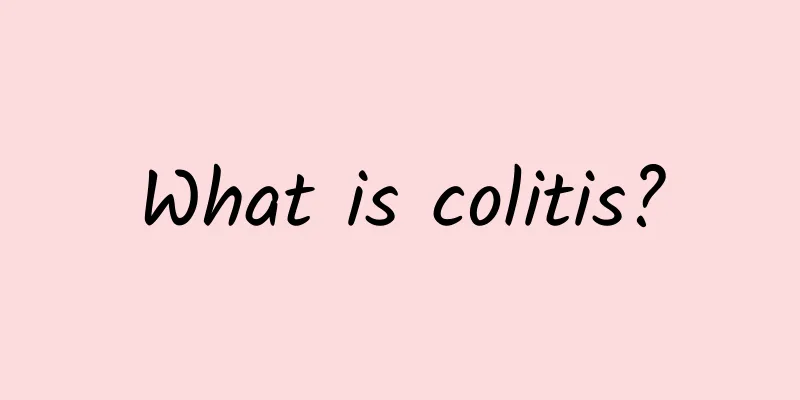Why is my nose so itchy?

|
An itchy nose is usually caused by irritation inside the nose. We know that there are abundant mucous membranes inside the nose, which are very sensitive. Slight stimulation will cause severe itching. There are many reasons why the nose may irritate and cause itching, especially persistent itching, which may be caused by allergies. So, what causes an itchy nose? Dry and itchy nose is called "nasal dryness" in traditional Chinese medicine, which often induces patients to pick their noses and cause small nosebleeds. In this case, don't pick your nose with your hands frequently. An itchy nose is a common symptom of rhinitis, and specifically it is the most important symptom of dry rhinitis. Traditional Chinese medicine calls it "dry nose". The disease is more common in people with weak constitutions and those who often inhale unclean gases. Patients feel dryness and discomfort in their noses, or a tingling or foreign body sensation, which often induces them to pick their noses, causing small amounts of nosebleeds. The occurrence of dry rhinitis is closely related to climate and occupational factors. It is caused by long-term stimulation of the nasal mucosa, which leads to atrophy of the mucus glands and reduced secretion, resulting in dryness of the mucosa and even superficial erosion. Spring in the north is windy and dry, and the human body easily loses a lot of water through sweating and breathing. In addition, the weather change is unpredictable, which makes it easy to "get angry". Many people's nostrils are very dry and itchy, so they can't help but pick their noses with their hands. As a result, the more they pick, the more itchy it becomes, and even bleeding. In addition, the air in spring is full of pollen. Coupled with the windy and dry weather, dust and animal fur also float in the air. These are allergens. When people come into contact with these allergens, they can easily develop allergic rhinitis. What to do if your nose itches 1. Avoid contact with allergens (1) The number of dust mites in the room should be less than 20/m2; maintain the relative humidity of the living space below 60%, but too low (such as below 30%-40%) will cause discomfort; sweep the carpet; wash bedding and curtains. Mite allergens are soluble in water, and washing textiles can remove most of the allergens; use air purifiers and vacuum cleaners with filters. (2) Avoid allergens during the corresponding pollen allergy season. (3) Patients who are allergic to animal fur should avoid allergens. 2. Drug treatment Intranasal and oral administration are commonly used, and the efficacy may vary between different patients. There is no long-term sustained efficacy after discontinuation of the drug, so maintenance treatment is required for persistent allergic rhinitis. Prolonged treatment does not lead to rapid drug resistance. Intranasal administration has many advantages. High concentrations of drugs can act directly on the nose, avoiding or reducing systemic side effects. However, for patients with other allergic diseases, drugs need to act on different target organs, and intranasal administration is not the best choice. Systemic drug treatment is recommended. (1) Antihistamines Oral or nasal second-generation or new H1 antihistamines can effectively relieve symptoms such as nasal itching, sneezing and runny nose. It is suitable for mild intermittent and mild persistent allergic rhinitis, and can be used in combination with nasal corticosteroids to treat moderate to severe allergic rhinitis. (2) Nasal corticosteroids can effectively relieve symptoms such as nasal congestion, runny nose and sneezing. For critically ill patients who do not respond to other drug treatments or cannot tolerate nasal medications, oral corticosteroids can be used for short-term treatment. (3 ) Anti-leukotriene drugs are effective for allergic rhinitis and asthma. (4) Chromone drugs are effective in relieving nasal symptoms, and eye drops are effective in relieving eye symptoms. (5) Intranasal decongestants can relieve nasal congestion symptoms caused by nasal congestion, and the course of treatment should be controlled within 7 days. (6) Intranasal anticholine drugs can effectively suppress runny nose. (7) Some Chinese medicines are effective in relieving symptoms. The treatment principles for children and the elderly are the same as those for adults, but special attention should be paid to avoiding adverse drug reactions. (8) Pregnant patients should use various drugs with caution.
|
<<: What causes a swollen nose?
Recommend
Can nephritis cause high blood pressure?
Nephritis is a common kidney disease in clinical ...
What is sugar earwax?
Sugary earwax may be caused by excessive secretio...
What are the sequelae and dangers of herpes zoster?
Shingles is a very common skin disease in life. M...
What is the chance of sexual transmission of hepatitis C?
In daily life, you may have only heard of hepatit...
How to treat acute tonsillitis?
The treatment of acute tonsillitis should be paid...
How does Traditional Chinese Medicine treat hyperthyroidism?
Hyperthyroidism is what we often hear about. This...
Right inner thigh pain
Pain in the inner side of the right thigh root is...
Wolfberry can strengthen yang
Wolfberry is a kind of medicinal material that ca...
What to do if the carotid artery is blocked
If the carotid artery is blocked, the harm is rel...
What causes sweaty hands and feet?
Sweating hands and feet is a relatively normal ph...
Is pulmonary edema contagious? Timely treatment is the most important
Pulmonary edema is mostly acute, and coughing is ...
Neurofibromatosis
In the past, medical technology was relatively ba...
What is the cause of high uric acid
High uric acid level is a common disease. At the ...
What is the effect of Ganoderma lucidum spore powder
What is Ganoderma lucidum spore powder? Ganoderma...
Muscle soreness when exerting force on the thigh
The thighs and calves are important parts that su...









